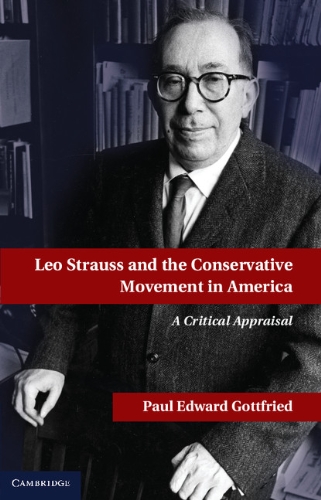◄►◄❌►▲ ▼▲▼ • BNext New CommentNext New ReplyRead More
Having worked my way through the neocon interpretations of la grande affaire, it may be appropriate to add my two cents, particularly since Lew Rockwell has been prodding me for some time to do so. Most striking about the present name-calling, arising from neocon efforts to punish Lott for jollying up Thurmond at his centennial birthday party, is the recognition that neocons are somehow different from old-fashioned conservatives.
Two commentators who got this right are Andrew Sullivan and Charles Krauthammer. Though ferociously unsympathetic to our side, both journalists understand that they themselves are not “conservative.” Sullivan claims to have learned a great deal from the neocons, which is undoubtedly true, though the prodigious brainpower he attributes to them is open to question. Krauthammer goes after the Old Right for being at worst racist and at best insensitive “to the most important political development of my lifetime,” the success of the civil rights movement. The truth to be distilled from Krauthammer’s remark is that we on the Old Right hold a more critical view of what he and his friends take to be a thoroughly righteous cause — and one whose victory has supposedly made us better individually and collectively.
A view that I expressed to David Frum, while a Philadelphia Society speaker in 1987, is that the postwar Right considered the civil rights movement and its advances an ongoing invitation to federal social engineering, which did not end — far from it — with the racial integration of public facilities. The campaign against prejudice would go on and on, buttressed by tens of millions of black votes, which would have the effect of further straining our already weakened constitutional structure. At that time I quoted the published observations of William F. Buckley from the early sixties, which (to give this time-server his due) have never been surpassed for predictive acuity.
In his most recent ramblings for NROnline, Frum seems to have forgotten our conversation entirely. Thus he talks up Buckley for having wrested the postwar Right from Southerners and racists, by getting their minds off the kind of Dixiecrat politics that Lott apparently conjured up. But Buckley in fact took positions similar to those of the Dixiecrats, albeit with more verbal skill, and did so well into the sixties. He also opened his fortnightly to such critics of federally mandated integration as Virginius Dabney and J.J. Kilpatrick.
Throughout the sixties, moreover, NR featured multiple pointed attacks on the civil rights movement by James Burnham, Frank Meyer, Will Herberg, Jeffrey Hart, and its editor-in-chief. Frum’s attempt to associate the paleos, and more specifically The American Conservative, with obsessive anti-Semitism because of their criticism of Israeli foreign policy, overlooks the willingness of NR‘s editors in the old days to engage even more forcefully in “Judeo-critical” commentary. Burnham did so throughout the sixties; and in 1961, Buckley himself attacked the Israeli showcasing of the Eichmann trial for nurturing Teutonophobia and for expressing Jewish vengefulness. In the fullness of time, Buckley would preside over a publication that specialized in both.
Equally ignorant of or obstinately indifferent to the history of postwar American conservatism, or my book on the subject, the pubescent Jonah let it be known that “traditional conservatives” also deserve credit for bashing Lott and the Dixiecrats. Jonah (alas) cannot provide a single illustration for his assertion. What he cites as examples of this anti-Southern rallying, Heritage Foundation and National Review, represent the neocon takeover of the media-certified “conservative movement.” Both, as my book on the fading Right indicates, were heavily dependent by the early nineties on neocon funding and had no function thereafter except to proclaim neocon partylines. After the fall of the Berlin Wall, a Heritage employee, and an acquiescent Brit, Stuart Butler rushed into print a document opposing German unification. One may infer that this was done to please the foundation’s neocon masters, who are about as fond of Germans as they are of Arabs and Southern whites.
A major problem with the civil rights movement that Krauthammer and David Horowitz are trying to uphold can be intuited from the French Communist theorist Louis Althusser, who has criticized muddled leftists for sentimentalizing the young Marx. According to Althusser, in his thoughtful anthology Pour Marx, those who look for the true Marx in his early reflections on psychological alienation or Hegelian philosophy, have no sense of their hero as a “concrete, historical being.” Although Marx did start out as a Hegelian of sorts, he then encountered “the older German philosophic legacy as a crushing weight that had to be overcome” in order to create a materialist interpretation of history. Like the “true path of Marx,” as explained by a literate leftist, the path of the civil rights movement, however misinterpreted by illiterate leftists posturing as conservatives, did not remain suspended in a “personal realm of ideas.” It was a historical force that the once lucid Buckley, Will Herberg, James Burnham, and Murray Rothbard all understood, as an evolving threat to constitutional order.
The 1964 Civil Rights Act was not the culminating point of what Willmoore Kendall once properly called “the civil rights crisis.” What the neocons celebrate as the true meaning of the civil rights revolution in their personalized “realm of ideas” was a halting station, on a path that has now led into public administrators and judges coming down hard on suspected homophobes. Needless to say, the neocons find none of these extensions of the civil rights crusade to be as offensive as they do Trent Lott’s postprandial endorsement of the Dixiecrats.
The reason is that these “moderate conservatives,” like the rest of the post-Marxist Left, know la révolution fait bloc. The “realm of ideas” surrounding the neocons’ preferred telling of the revolution makes no sense to those who pursued civil rights as an incremental strategy; and thus those who began with their private versions of this event, in this case adorned with the bowdlerized as well as plagiarized texts of Martin Luther King, have had to catch up with the real History.
Others, like David Horowitz, have tried to legitimate their halfway house and therefore go on repeating the civil rights slogans of the early sixties that their leaders happily discarded once having achieved a temporary set of goals. But by now the defenders of this counterfactual civil rights revolution may look more archaic than the conservative critics who can grasp where historical forces, and not decontextualized rhetoric, had to lead. Most neocons know where the political conversation has to take place for them to be included. Although they still grouse ritualistically about affirmative action, particularly when, as Jonah tells us, it affects Jewish applicants to universities, their political loyalties remain unaffected by this minor complaint.
Joe Lieberman, Colin Powell (before he got off the ranch on Israel), and Rick Lazio are politicians who, despite their emphatic support for quotas, have earned high marks from the neocons. Indeed neocons have an elastic left flank that easily accommodates Zionists, like Bill Bennett’s pal Lieberman, who favor both racial and gender quotas and partial birth abortion. The really bad guys, in their view, are the ones who want to reassess the ritual of purification held up as a defining moment by Krauthammer. They, and not those who lean to the left, are the ones who have to be destroyed.
A final expression of perplexity: Does Frum seriously believe that opposition to American imperialism is a code word for anti-Semitism that the newly formed paleos brought to the American Right in the 1990s? If so, this media-approved maven on conservative thought shows an astounding ignorance of the history of the American Right.
Jewish libertarians, including Frank Chodorov, Murray Rothbard, Burt Blumert, and Ronald Hamowy, have been outspoken proponents of what we are made to believe is a cover for virulent anti-Semitism. Frum has a right to disagree with their position, but linking it to the prejudice that ruins one professionally is either inexcusably stupid or unspeakably malicious. In a politically and intellectually honest society, one would not have to dignify such idiocy with a response. But then in such a society NROnline would not be a grab bag of infantile, leftist lies.
Paul Gottfried [send him mail] is professor of history at Elizabethtown College and author of, most recently, the highly recommended Multiculturalism and the Politics of Guilt.

 RSS
RSS









